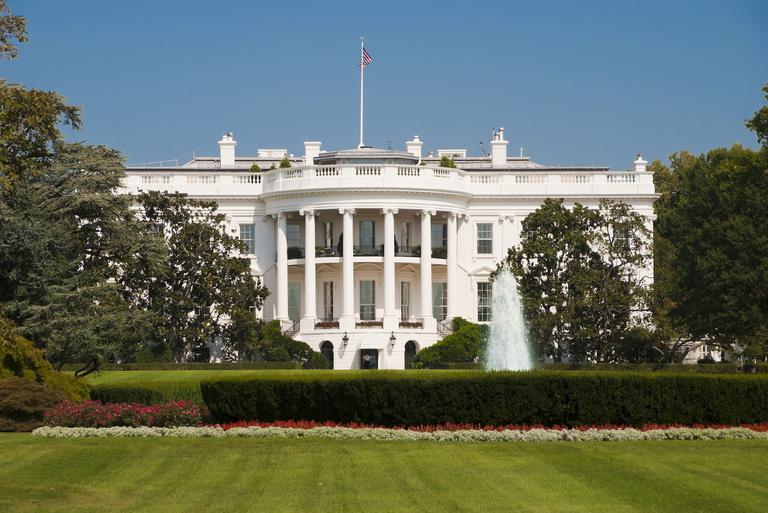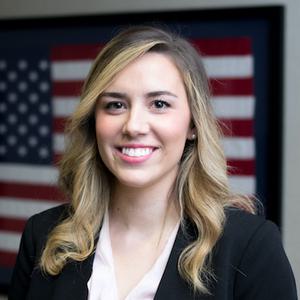
Health Care
Kaitlyn Finley | December 14, 2018
Eliminate barriers to free-market principles in health care
Kaitlyn Finley
The White House released a comprehensive policy report on America’s health care system highlighting many problems—mainly resulting from a widespread lack of competition and consumer choice and causing higher costs for consumers and taxpayers. The report by the Departments of Labor, Treasury, and Health and Human Services includes many recommendations for state and federal policy to promote consumer choice, increase the supply of health care providers, and eliminate burdensome government regulations.
Since the implementation of Obamacare, many insurance companies were forced to cut noncompliant, affordable health insurance plans, leaving consumers with only more expensive options. For example, monthly premiums for family coverage have increased by 20 percent since 2013. Currently, more than half of all U.S. counties have only one insurance provider to choose from on public Obamacare exchanges.
Insulated by third-party payers, consumers rarely see the true cost of health care purchases. This reduces or eliminates incentives to request transparent pricing and to shop around for the best value. “Third-party payment for routine, predictable and shoppable expenses,” the report notes, “reduces consumers’ incentives to obtain maximum value and has contributed to opaque and byzantine prices and bureaucratic complexities. As a result, consumers have less ability and less incentive to carefully shop for healthcare, compare prices and quality, and select the most efficient providers.”
The report points out that while overall health care costs rose at double the rate of inflation between 1992 and 2012, this was not true for all medical procedures. A few were, at least in part, immune to the large price increases and also saw considerable increases in quality and outcomes for patients.
For example, LASIK eye surgery saw its prices drop by 25 percent from 1999 to 2011. The average price for cosmetic surgery procedures only grew at half of the rate of inflation from 1992 to 2012. These elective procedures are different because most patients pay out-of-pocket and so surgeons must compete directly for consumer dollars. As the report notes, “These examples highlight that when consumers are spending their own dollars and shopping accordingly, providers have greater incentives to improve quality and cut costs.”
To promote consumer-driven health care options, the report recommends Congress should raise the contribution limit of Health Savings Accounts (HSAs) and allow more insurance plans to be HSA-qualified plans. HSAs allow individuals to make tax-exempt contributions towards qualified medical expenses. Once individuals reach age 65, they may withdraw any remaining funds for any purpose without tax penalty.
The report also notes that current tax codes should be changed to allow individuals to legally use these tax-sheltered HSA funds for innovative health care service models such as direct primary care (DPC). General practitioners who utilize the DPC model offer their services to patients for a flat fee instead of accepting insurance and co-pays. Coupled with a high-deductible plan, a DPC membership can save families thousands of dollars each year compared to traditional health insurance plans.
Recently at the American Enterprise Institute (AEI), U.S. Department of Health and Human Services Secretary Alex Azar lauded The White House’s report and emphasized additional federal reforms that may cut unnecessary spending and promote more competition in federal health care programs, including Medicare.
According to Secretary Azar, Medicare pays significantly higher rates for select services performed at hospital-owned facilities than for services provided at outpatient centers. He noted that this unlevel playing field has driven consolidation. It allows hospitals to buy out their small outpatient competitors by promising physicians higher compensation rates for select services. Secretary Azar stated that adopting site-neutral reimbursement policies for all services could save the federal government $380 million next year.
The report highlights a few areas in which state laws have inadvertently decreased the supply of and access to health care in their states. These include scope of practice laws, which limit health care professionals to providing services in line with their medical training. These well-intentioned regulations, the report says, may actually limit the ability for certain health care professionals to fully utilize their medical training.
For example, although some health care professionals, including nurse practitioners (NP) and physicians’ assistants (PA), are trained to perform some of the same services as physicians (administering physical examinations, treating certain chronic conditions, and prescribing ordinary medications), they face significant practice restrictions in many states (including Oklahoma). This reduces access to care in certain regions, especially underserved, rural areas.
To increase the supply of health care providers and improve access, the report recommends states continue to form interstate licensure compacts so physicians may treat patients who reside in other states using telemedicine services. Currently, 24 states have entered into the Interstate Medical Licensure Compact; Oklahoma has not joined.
As American health care spending continues to escalate and even outpace national gross domestic product growth, it is imperative that Congress, federal regulators, and state legislatures unwind unnecessary laws and regulations in order to put consumers back in charge of their own care.

Kaitlyn Finley
Policy Research Fellow
Kaitlyn Finley currently serves as a policy research fellow for OCPA with a focus on healthcare and welfare policy. Kaitlyn graduated from the University of Science and Arts of Oklahoma in 2018 with a Bachelor of Arts in Political Science. Previously, she served as a summer intern at OCPA and spent time in Washington D.C. interning for the Heritage Foundation and the U.S. Senate Committee on Environment and Public Works.